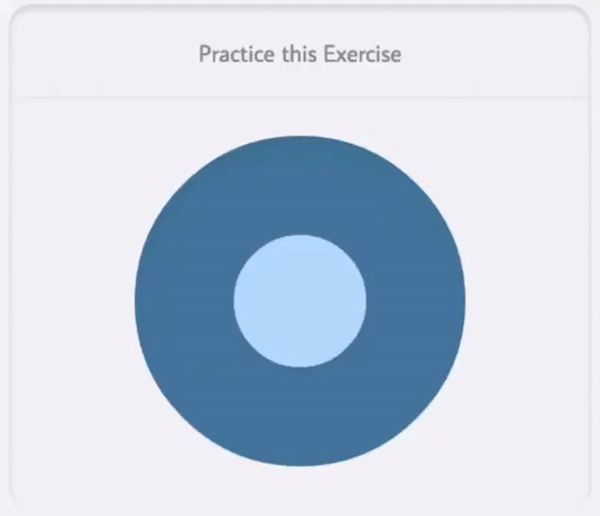- According to the CDC, one-fourth of employees view their jobs as the number one stressor in their lives.
- Only about one-third of individuals suffering with an anxiety disorder receive treatment (prescription medication).
- There are alternative, natural treatments that have been proven to reduce or eliminate anxiety.
Anxiety disorders are actually the most common mental illness in the U.S. – affecting 40 million adults.
Symptoms of work anxiety include excessive worrying, trouble sleeping, and an inability to concentrate in the work environment.
According to the Anxiety and Depression Association of America (ADAA), anxiety becomes a problem when it interferes with daily activities, such as your ability to work or complete tasks.
Reasons for anxiety at work
- Toxic workplace environment
- Tight deadlines
- Working long hours
- Unmanageable workload
- Not feeling valued (low salary, no recognition, lack of benefits)
- Demanding supervisors/higher-ups
Anxiety disorders are highly treatable
Nearly one-half of large companies in the U.S. provide some type of stress management training for their workforces. According to the CDC, one-fourth of employees view their jobs as the number one stressor in their lives.
Only about one-third of individuals suffering with an anxiety disorder receive treatment, but treatment doesn’t need to solely consist of prescribed medication. There are other natural and proven ways to reduce or eliminate anxiety.
There are many safe, drug-free remedies to relieve feelings of anxiousness, such as mind-body techniques, supplements, and calming teas.
What can be done to reduce anxiety when in the workplace?
Work-related stress/anxiety doesn’t just disappear when you go home for the day. When stress persists, it can take a toll on your health and wellbeing.
Whether at home or in the workplace, there are steps you can take to make yourself feel better and calmer. While the pharmaceutical approach is an option, for those who have less severe anxiety or wish to cure themselves naturally, the holistic route may be best for you.
Smelling or ingesting herbs
- Chamomile tea: Some compounds in chamomile bind to the same brain receptors as drugs like Valium.
- Lemon balm herb: This has been used at least since the Middle Ages to reduce stress and anxiety and help with sleep.
- Lavender: The aroma of lavender may be an “emotional” anti-inflammatory. In one study, students who inhaled lavender oil scent before an exam had less anxiety.
Body and mind techniques
- 4-7-8 breathing technique: Deep breathing can eliminate anxiety – this can be done by exhaling completely through your mouth, then inhaling through your nose for a count of four. Hold your breath for a count of seven, then let it out slowly through your mouth for a count of eight.

- Exercise: Taking time out of the workday to go on short walks greatly improves stress. In one study, researchers found that those who got regular vigorous exercise were 25% less likely to develop depression or an anxiety disorder over the next five years.
- Reiki: This meditative practice promotes relaxation, reduces stress and anxiety, and promotes a positive mental state.
- Tapping: Similar to acupuncture, EFT tapping focuses on the energy hot spots to restore balance to your body’s energy, which can relieve negative emotional symptoms.
- Yoga: Both fitness and yoga lead to an improvement of psychological health; it decreases anger, anxiety, and depression, and increases the feeling of self-efficacy. People who do yoga at work may be less stressed than their peers who don’t, a research review suggests.
- Diet changes: In the long term, diet is key to reducing anxiety, says Dr. Ramsey, coauthor of The Happiness Diet. “When you get an anxiety attack, it may mean your blood sugar is dropping.” His advice: Eat a whole-foods, plant-based diet with carefully selected meat and seafood, plenty of leafy greens to get folate, and a wide variety of phytonutrients to help reduce anxiety. Check out the best snacks for “brain fuel”.
Take steps to analyze your anxiety
- Track your stressors and how you respond to them. A huge aspect of anxiety is not knowing what causes it.
- Develop healthy responses when feeling anxious; understand what’s bad for your health when coping with stress/anxiety (such as drinking, smoking, making poor food choices).
- Establish boundaries – either with people or with technology. Being available 24/7 can be incredibly stressful for some.
- Take time to recharge to avoid the negative effects of anxiety and burnout.
- Talk to your supervisor/boss. Employee health has been linked to productivity at work, bosses have incentives to create a work environment that promotes employee wellbeing.
Stress prevention in the workplace
The high psychological and social cost that people experience as a result of stress in the workplace is becoming an increasing problem not only for workers but for management. Reduction in efficiency due to work stress has a comparable impact to the work reduction caused by strikes on the economic front.
Workplaces with high levels of mental wellbeing are more productive. Addressing wellbeing at work increases productivity by as much as 12%.
Anxiety is a highly personalized phenomenon and can vary widely. How you cope with your stress, anxiety and other emotions is fully up to you, but it’s recommended you make sure you’re treating yourself or seeking treatment.


 Dr. Gleb Tsipursky – The Office Whisperer
Dr. Gleb Tsipursky – The Office Whisperer Nirit Cohen – WorkFutures
Nirit Cohen – WorkFutures Angela Howard – Culture Expert
Angela Howard – Culture Expert Drew Jones – Design & Innovation
Drew Jones – Design & Innovation Jonathan Price – CRE & Flex Expert
Jonathan Price – CRE & Flex Expert











